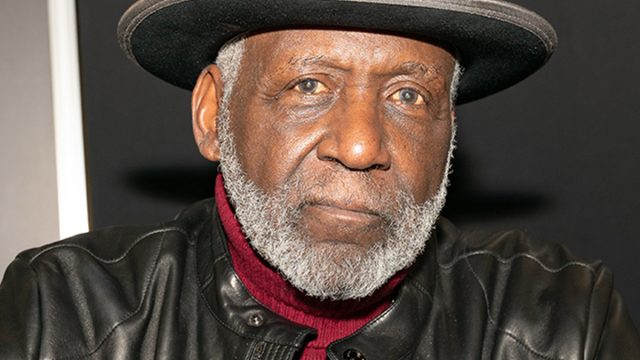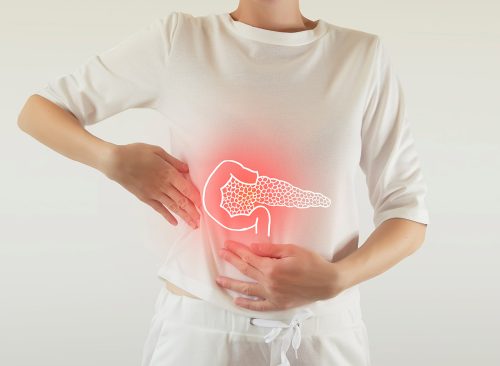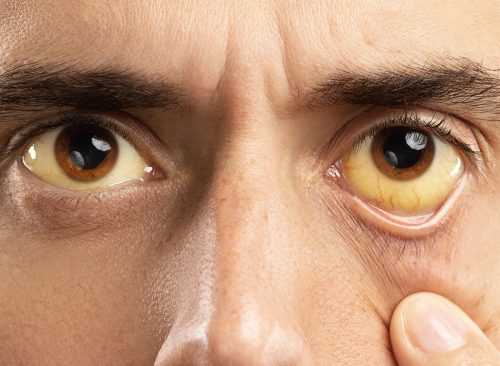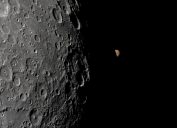6 Signs You Have Pancreatic Cancer Like Richard Roundtree, Star of "Shaft"
The “Shaft” star died Tuesday at the age of 81.

Richard Roundtree, who starred in the 1971 film "Shaft," died on Tuesday at the age of 81 after a short battle with pancreatic cancer. "Richard's work and career served as a turning point for African American leading men in film," Patrick McMinn, his manager since 1987, in a statement confirming his death. "The impact he had on the industry cannot be overstated." Rountree also survived breast cancer and was an advocate for breast cancer awareness among men.

Pancreatic cancer is cancer of the pancreas, the organ tucked away behind your stomach that produces essential enzymes and hormones your body needs for digestion and to regulate blood sugar. Cancerous cells form in the tissues of the organ, disrupting its necessary functions.

There are few early signs of pancreatic cancer, and there are no reliable early screening tests. This means that most cases aren't diagnosed until it's too late.

Treatment of pancreatic cancer can involve surgery, radiation therapy, chemotherapy, targeted therapy, and immunotherapy.

According to the American Cancer Society, "for all stages of pancreatic cancer combined, the one-year relative survival rate is 20%, and the five-year rate is 7%," reports Pancreatic.org. Read on to learn the warning signs we should all watch out for.

One symptom of pancreatic cancer is repeated nausea and vomiting, especially after eating fatty foods like fries, pizza, or even avocados. Why? Pancreatic cancer symptoms can arise when pressure from a pancreatic cyst or tumor is growing on the stomach or small intestine, causing a block of the digestive tract. As the growth becomes bigger, it can actually cause a partial block by entwining itself around the far end of the stomach.

Jaundice is a yellowing of the skin and eyes that occurs when bilirubin, a component of bile, builds up in the blood. Bilirubin is made by the liver as a breakdown product of old red blood cells and is usually eliminated from your body when your gallbladder releases bile. Bile travels from your gallbladder through the common bile duct and passes through the pancreas. However, if the bile ducts become blocked—for whatever reason—jaundice may result.

If your stool looks out of the ordinary – oily, greasy, gray, or floating, it can be a sign of pancreatic disease. It can wreak havoc on your ability to produce the digestive enzymes that break down fats properly. The result can be funky feces. See an oily film in your toilet water after going No. 2—or find your feces floating? That's due to dietary fat that's not getting broken down by your body. And as for the pale poop phenomenon: Bilirubin gives your poop its brown color, but when your bile ducts are blocked, that color goes to monochromatic hues of gray or clay.

If you eat a healthy diet your weight is under control, but you become diagnosed with diabetes, it might warrant a closer look at your pancreas. This is true, especially if you're over 50 and have a low BMI (body mass index), with no family history of diabetes. Your pancreas produces insulin, which regulates your body's blood sugar. When your pancreas is under attack by a tumor or disease, systems begin to fail, and it can be common for people to suddenly develop type 2 diabetes.

If you're dropping weight rapidly for no reason of your own volition, it could be due to digestive issues associated with pancreatic cancer or other pancreatic disorders. The weight loss may be caused by incomplete digestion, either due to the cancer or as a result of the cancer itself (like when a tumor creates a stomach blockage). Unintended weight loss is a common symptom of pancreatic cancer.

Pain in your abdomen or back is a common warning sign of pancreatic cancer and acute pancreatitis, but the pain manifests differently for each. Radiating pain that extends toward the mid or lower back, which goes on for weeks, could be a sign of pancreatic cancer. The American Cancer Society shares that if a tumor that starts in the body or tail of the pancreas grows to be rather large, it can press on neighboring organs, causing pain. Sometimes, pancreatic cancer can spread to the nerves that surround the pancreas, which can result in back pain. If the pain, however, comes on suddenly, feels intense, and is mostly in the middle of your abdomen, it's more likely to be acute pancreatitis.














